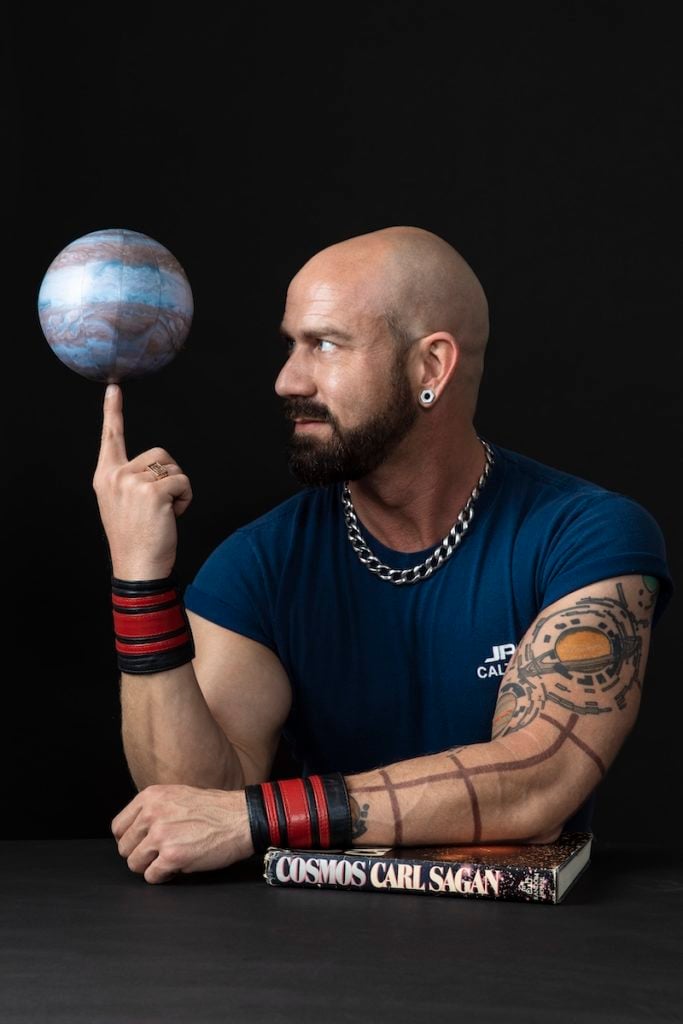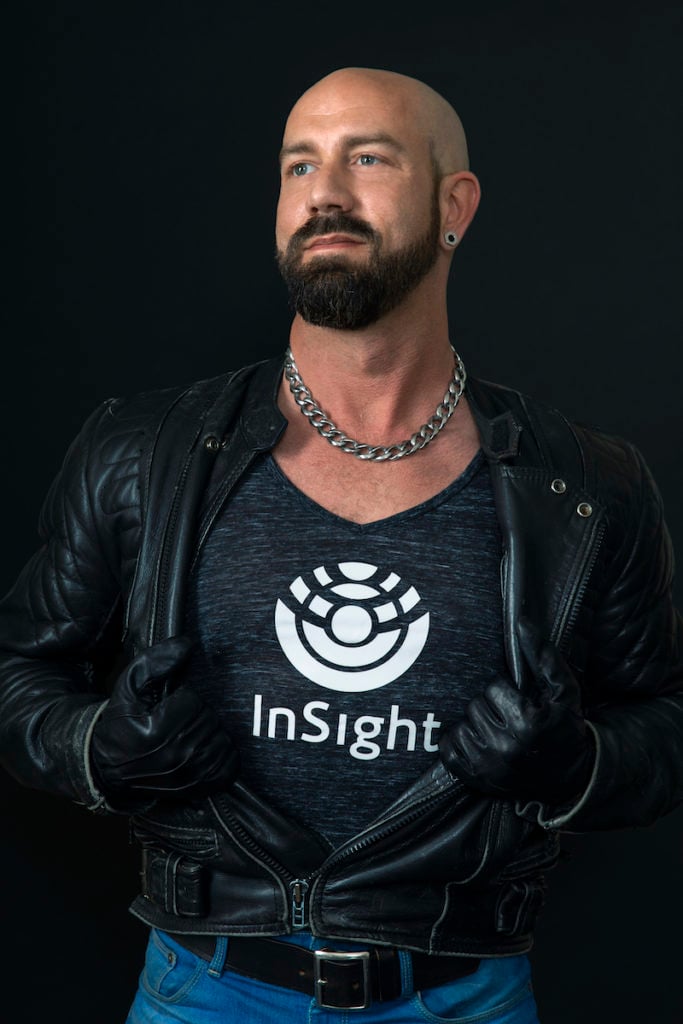
Troy Lee Hudson, aka “Science Daddy,” says science is sexy. Hudson, 41, an openly gay engineer at NASA’s Jet Propulsion Laboratory (JPL) in Pasadena, has been fascinated with the cosmos since he was a kid growing up near Houston and the Lyndon B. Johnson Space Center, the nation’s hub human spaceflight training, research, and flight control. Photos: Gabriel Goldberg Photography.
Troy Lee Hudson, aka “Science Daddy,” says science is sexy.
Hudson, 41, an openly gay engineer at NASA’s Jet Propulsion Laboratory (JPL) in Pasadena, has been fascinated with the cosmos since he was a kid growing up near Houston and the Lyndon B. Johnson Space Center, the nation’s hub human spaceflight training, research, and flight control.
SCIENCE IS SEXY
“Science IS sexy. And it’s beautiful,” Hudson says. “Learning about the universe and its workings enhances my connection to it.
“That drive to always be growing and discovering is inherently attractive to me, and too many others,” he says. “Stagnation is boring.”
JOURNEY TO MARS
Almost four decades later, Hudson’s latest discovery has taken him on a journey to Mars, helping fulfill a dream and create the nickname “Science Daddy,” which also is his Twitter handle.
Hudson is part of the team working on NASA’s InSight Mars project. A robotic explorer was sent to the Red Planet to study its crust, mantle, and core and determine how Mars formed.
Hudson is part of a panel discussion today in Long Beach at the Space Expo, where he will talk about NASA’s InSight, science, and LGBTQ issues.
On Starz’s ‘Vida,’ queer Latinx character from Ser Anzoategui shines
NASA’S INSIGHT
Hudson’s work on InSight has been paramount:
- Helped write the NASA proposal that got the Insight funded
- Engineered and tested the instrument that will burrow into Mars surface
- Is part of the team that will plan future exploration operations on Mars
When the probe successfully landed on Mars in November, after traveling 300 million miles, the event was broadcast live.
‘HOT DADDY ENGINEER’
Hudson appeared on the telecast, which was shared on social media, and some viewers noticed his rainbow pride pin and his thigh harness. One person who watched the landing on Twitter called Hudson a “hot daddy engineer,” which Hudson turned into his moniker Science Daddy. Hudson has another celestial body is life — Matthew Cogswell. They’ve been a couple since July 2017 and are registered domestic partners.
LGBTQ visibility in Hollywood films at its lowest in 6 years, GLAAD report says
In an interview with Q Voice News, Hudson, talks about why Mars exploration is important, LGBTQ visibility, his rainbow pride pin.
Here are some excerpts.
MARS VS. EARTH
“Earth possesses several qualities that we believe were helpful for life: a gyroscopically-stabilizing moon which keeps Earth’s axis from tilting too much, plate tectonics provides long-term ocean and atmospheric recycling, and our magnetic field protects our atmosphere from the solar wind,” Hudson says. “Mars has none of these things.
“We keep discovering planets around other stars. How common are planets like Earth in the universe? Is Earth an incredibly rare anomaly to possess all three? Are all three even essential for life?,” Hudson says. “The science returned by InSight will help shed light on these questions.”
BLINDED BY SCIENCE
“There’s something about doing geology on another planet that is viscerally appealing,” Hudson says. “I can imagine that someone, someday, will go to these places in person and see for themselves what we’re seeing through our robotic proxies. Had I the chance, I’d gladly go explore Mars myself — with the caveat that I WOULD like to come back home to Earth in one living piece.”

“Science IS sexy. And it’s beautiful,” Hudson says. “Learning about the universe and its workings enhances my connection to it. That drive to always be growing and discovering is inherently attractive to me, and too many others,” he says. “Stagnation is boring.”
LGBTQ PEOPLE INVISIBLE
“The lack of visible role-models of LGBTQ folk in science and technological fields may discourage some from pursuing it, especially at a young age when a child looks out upon the world to find people like themselves,” Hudson says. “If someone feels like a particular life path would threaten them, for whatever reason, they’re likely to avoid it. That lack didn’t deter me from going into STEM, but perhaps that’s because my love of science and engineering was well cemented long before my own sexuality became clear to me. I’m thrilled and honored to have an opportunity to fill that gap in a public way.”
LGBTQ VISIBILITY
“I decided many years ago, when I attended my first professional conference while in grad school, that I wanted to do something to combat being invisible as a gay man,” Hudson says. “One’s sexuality doesn’t normally come up in the sorts of conversations colleagues have, but I felt it was important for people to know it about me. If nothing else, I saw it as a way to put up a flag for other LGBTQ folk and allies to see and help us all feel like we were less alone.
RAINBOW PRIDE PIN
“It’s a small and subtle thing, and I don’t wear it every day when I’m at work at JPL. But anytime there’s a public talk, conference, or even a high-profile visit that I’m party to, I wear it proudly,” Hudson says.
SCIENCE DADDY
“It certainly has had the desired effect. Had I not worn it on landing day, I don’t think #ScienceDaddy would have become a thing, and I wouldn’t have this highly-visible platform today,” Hudson says. “I encourage others who would stand up and be counted as part of the LGBTQ family, allies included, to get one of their own to wear when they so desire.”
